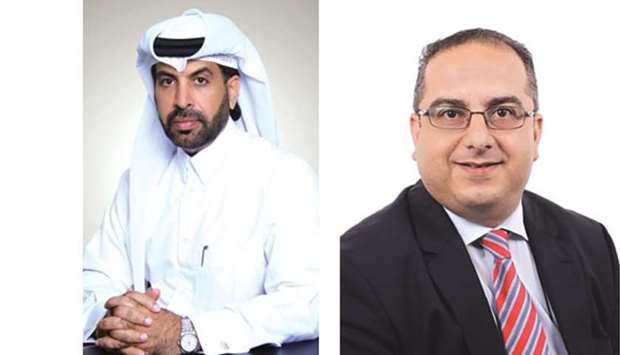Unperturbed by the blockade, more than 50 international investment portfolios opened their accounts in the Qatar Stock Exchange, where the investors’ confidence is back with much vigour, especially after the fourth quarter of 2017.
The bourse, which is comfortably on the positive trajectory year-to-date, has not witnessed drastic drop in average daily turnover on the average between June 2017 and 2018 and capitalisation now stands at more than QR505bn.
Most sectors performed well, since valuations across the market were at an eight-year low and specifically banks and industrial sector performed well, given the improving oil prices and the government’s continued budget spending, according to Talal F Samhouri, head of asset management, Amwal, a leading investment house.
The sentiments are high not only owing to the growing confidence of institutional investors in the country but also due to the attractiveness of the bourse.
“This large turnout by foreign portfolios and international investment instructions reflects the strong fundamentals of Qatar’s economy and the investment attractiveness of the QSE and its listed companies,” QSE chief executive Rashid bin Ali al-Mansoori said, after more than 50 foreign investment portfolios were opened.
“Despite the slight slowdown in the third quarter of 2017, the economy started picking up right after the embargo and went back to full speed ahead, and actually exceeded all expectations in the first quarter of 2018. The government reassured that the economy will continue ahead with its normal spending, especially for the World Cup event in 2022,” said Samhouri.
The growing interest of global financial entities in the QSE could be gauged from the fact local bourse is believed to have received more than 140 investor applications from new foreign investment portfolios.
During the last one year, the QSE had undertaken roadshows in the US, UK, Europe and Asia in order to tap international financial powerhouses and going by the opening of more than 50 global portfolios and the attempt was successful.
In the initial days of economic blockade, “certain and specific” funds from the siege countries had dumped shares to depress the market but the bourse “absorbed” such shocks, thanks to local investors and international institutions.
The portfolios of the siege countries accounted for less than 1% of the bourse’s capitalisation and therefore their exit had not had “significant” impact, al-Mansoori said, highlighting that the American and British funds have increasingly found their way into the QSE.
Although “certain specific” funds from the siege countries did rock the QSE initially, they could not dampen the optimism in the market, whose prospects are entrenched in the robust macro fundamentals of Qatar, which is still the fastest growing economy in the world.
“Post the Qatari equities’ shock decline in second and third quarters of 2017, we have seen investor confidence locally, regionally and internationally return to the Qatari markets in the fourth quarter on the back of extremely attractive valuations that was last seen in 2010,” Samhouri said.
With expanding product portfolio becoming a necessity in view of the growing appetite of international fund houses in Qatar, whose economic growth is still projected higher than the region’s average, the QSE introduced two exchange traded funds (ETFS): one based on its 20-stock Qatar Index and another one based on Al Rayan Islamic Index. The uniqueness that makes the QSE stand apart from its neighbouring bourses is that these ETFs have market makers.
Investors have been very active in both ETFs, either owning them as a long term market exposure or actively trading them, and that is visible from the total size of both ETFs who currently stand at total assets under management of about QR660mn, according to Samhouri.


